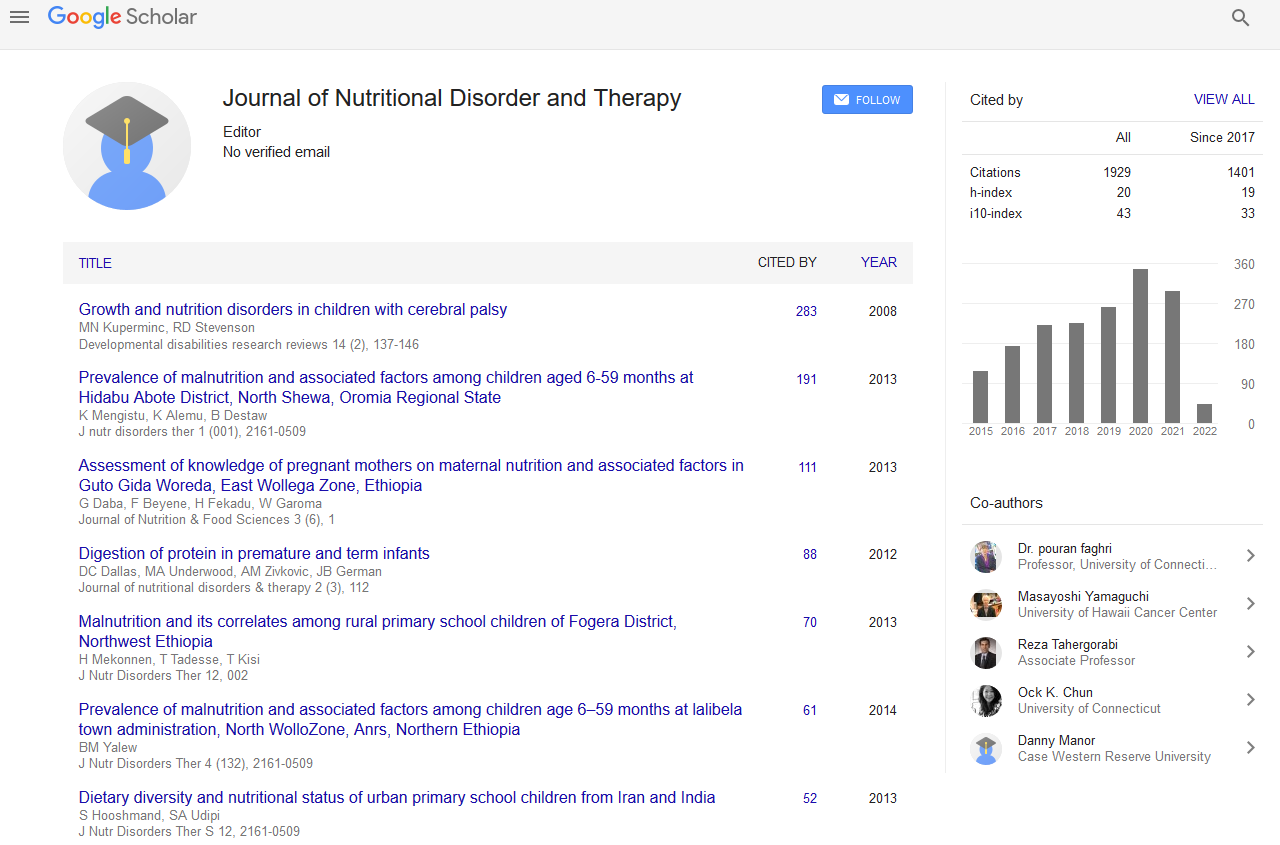Indexed In
- Open J Gate
- Genamics JournalSeek
- Academic Keys
- JournalTOCs
- Ulrich's Periodicals Directory
- RefSeek
- Hamdard University
- EBSCO A-Z
- OCLC- WorldCat
- Publons
- Geneva Foundation for Medical Education and Research
- Euro Pub
Useful Links
Share This Page
Journal Flyer

Open Access Journals
- Agri and Aquaculture
- Biochemistry
- Bioinformatics & Systems Biology
- Business & Management
- Chemistry
- Clinical Sciences
- Engineering
- Food & Nutrition
- General Science
- Genetics & Molecular Biology
- Immunology & Microbiology
- Medical Sciences
- Neuroscience & Psychology
- Nursing & Health Care
- Pharmaceutical Sciences
Formulating orange oil-in-water beverage emulsions for effective delivery of bioactives: Influence of carrier oil type on chemical stability, antioxidant activity and in vitro bioaccessibility of lycopene
15th International Conference on Clinical Nutrition
May 24-26, 2018 | Vienna, Austria
Erika Meroni and Vassilios Raikos
University of Milan, Italy
University of Aberdeen, UK
Posters & Accepted Abstracts: J Nutr Disorders Ther
Abstract:
The carotenoids inclusion in diet is considered to contribute to human health, as their antioxidant properties are associated with a reduced risk for the development of chronic diseases. Thus, the consumption of lycopene, which is the most predominant carotenoid in human plasma, is important for various biological functions. The addition of lycopene in food formulations is problematic because of its lipophilic nature and high susceptibility to oxidation. However, its bioavailability can increase when co-ingested with other lipids. A popular method for increasing carotenoid bioavailability is emulsification. The purpose of the present work was to develop an edible orange oil-in-water beverage emulsion containing lycopene as a bioactive ingredient. Particularly, the influence of carrier oil type on the chemical stability, antioxidant properties and bioaccessibility of lycopene in orange oil-in-water beverage emulsions was investigated. The emulsions were formulated with orange oil (A), which was partially (50%) replaced with tributyrin (B) or corn oil (C). The addition of corn oil enhanced the physical stability of the beverage during chilled storage by inhibiting Ostwald ripening. The formation of oxidation products was insignificant during storage for 28 days at 4°C, regardless the type of added oil. Lycopene was more susceptible to chemical degradation in the presence of unsaturated, long chain triglycerides and the retention followed the order: A (87.94%), B (64.41%) and C (57.39%). Interestingly, bioaccessibility of lycopene was significantly lower for emulsions formulated with 50% corn oil as opposed to 100% orange oil as indicated by the simulated in vitro gastric digestion model.
Biography :
Erika Meroni is a third year PhD student in Food Systems at the Department of Food, Enviromental and Nutritional Sciences (DeFENS), Italy. The general topic of her research is about bioavailability, biological activity, mechanisms of action and role on health of bioactive components (endogenous, from food or from food industry by-products) through cell culture models and in vivo studies. Currently, her PhD project is focused on a particular dietary approach, which is the “ketogenic diet”. The aim of her study is to investigate the metabolic effects of ketone bodies, by in vitro and in vivo studies.
Email:erika.meroni@unimi.it


